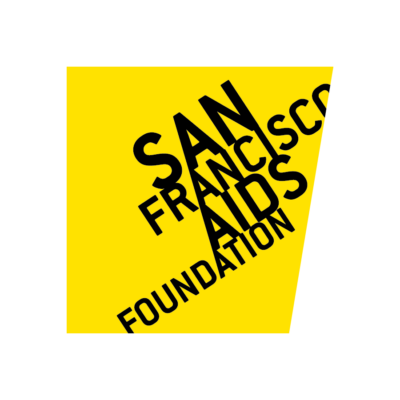“We’ve always been here” – National Women and Girls HIV/AIDS Awareness Day
March 10 is National Women and Girls HIV/AIDS Awareness Day (NWGHAAD), which raises awareness around the need for all women to get tested and treated for HIV.
Brittany Maksimovic is the manager of testing services at San Francisco AIDS Foundation. Her team handles all sexual health services offered outside of Strut, which includes services provided at 1035 Market Street, the 6th Street Harm Reduction Center, the mobile testing unit, and anywhere else the team can carry their supplies.
Brittany answered questions about the unique challenges women face when it comes to HIV, and why an intersectional approach to HIV prevention and management is critical.
How and why did you get involved with HIV work?
Although I have been steeped in queer activism since my teenage years, my first formal step into this world was as a volunteer HIV test counselor at the 6th Street Harm Reduction Center in 2012. Talking to people about their sex lives and drug use—what could be better?! It was a perfect fit for my Venn diagram of interests: sex and sexuality, psychology, substance use, queer liberation and mental health.
I learned everything I know from that experience with the San Francisco AIDS Foundation Testing Services team, staff who work at the 6th Street Harm Reduction Center, volunteers and, above all, our clients.
Can you please explain how you apply a harm reduction philosophy to your work?
A central aim of harm reduction is to “meet people where they’re at.” I take this to mean that rather than condescending to someone, or gate-keeping until they meet our standards, we should strive to make entry to services low-threshold and low-barrier. We invite people into the fold rather than exclude. Testing Services does this, quite literally, by bringing our services directly into our communities.
In your role, how do you and your team serve women and femme clients?
Our sexual health services have historically centered men who have sex with men across demographic groups, with some consideration given to people who use substances. These were the communities most affected by the epidemic in the early days, so that made sense at the time. A queering of our leadership and ethos has led to the adoption of a radically inclusive “sexual health meets social justice” model where we pair HIV screening alongside STI testing, PrEP enrollment, pregnancy screenings, hormone checks and help accessing social service benefits. As a result, we’ve focused on expanding services to groups that we haven’t been able to reach previously.
Why is it important to have a NWGHAAD?
From the epidemic’s beginning through the present day, women have faced unique concerns and challenges in HIV treatment and prevention. There’s no singular model of care that works for all communities affected by HIV. In order to be effective, we must tailor our approach to the individual. NWGHAAD reminds us of the ways we must meet women’s specific needs around HIV prevention and treatment.
To fight HIV, we must adopt an intersectional approach. Among all female-identified individuals, women of color—overwhelmingly Black women, but also a high proportion of Latinx women—have the highest rates of infection. As such, centering women in the national conversation on HIV is an issue of racial justice.
NWGHAAD also gives us a chance to honor women we’ve lost, women living with HIV, especially long-term survivors, and women who have fought—both past and present—to end the epidemic. We’ve always been here.
What do you hope to see accomplished by the next NWGHAAD?
Locally, I hope to see San Francisco even closer to its goal of Getting to Zero. I hope to see progress in the micro-elimination of hepatitis C among people living with HIV—championed by End Hep C SF—as well.
Organizationally, I hope for there to be a thread of “nothing for us without us” woven through everything we do. We need to center drug users, center people of color, center those of us who are on a side of the gender spectrum that appears different from who one may perceive our services are “for.”










